AI-900: Azure AI Fundamentals Series
Dive into the wonders of AI! These Cloudguides follow labs associated with the AI-900: Azure AI Fundamentals Certification, giving you an introduction to cutting-edge Azure AI Services, including machine learning, vision, language, speech, translation, and search capabilities. You'll see how to train and deploy models, build a simple bot, analyze images and text, transcribe speech, and extract structured data from documents. You’ll see how to work with Microsoft Copilot, Azure AI Foundry, and responsible AI practices.
Target Audience: AI Engineer Series Type: Fundamentals, learn the basics

In this guide, you'll see how to use the Automated Machine Learning feature in Azure Machine Learning to train and evaluate a machine learning model that predicts the number of bicycle rentals expected on a given day, based on seasonal and meteorological features. You’ll also see how to deploy and test the model.
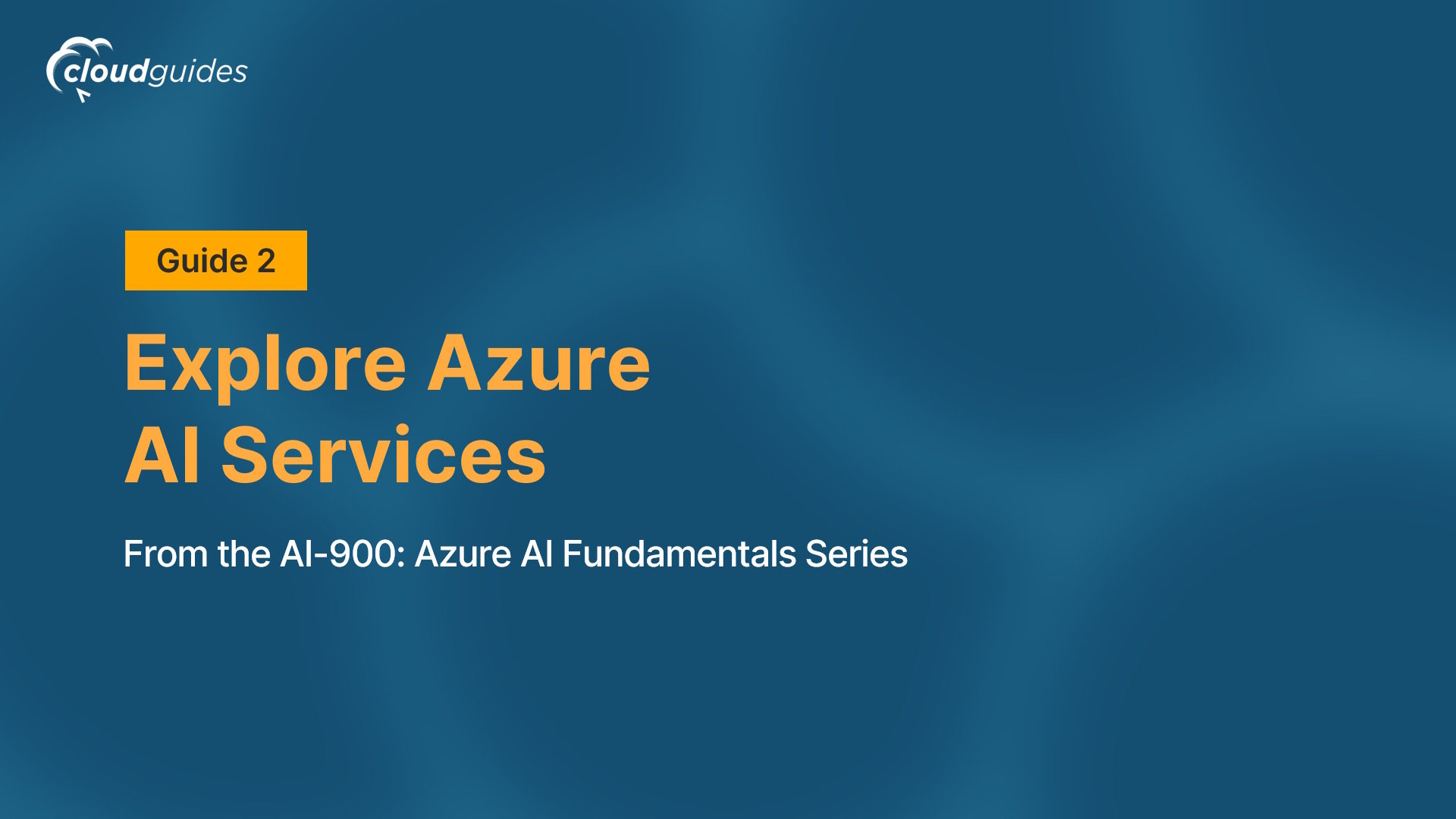
In this guide, you'll see how to use Azure AI Services to build AI applications with prebuilt and customizable APIs. You'll explore one of the services, Azure AI Content Safety, in the Content Safety Studio, where you can test text and image moderation, analyze severity scores, and evaluate content safety.
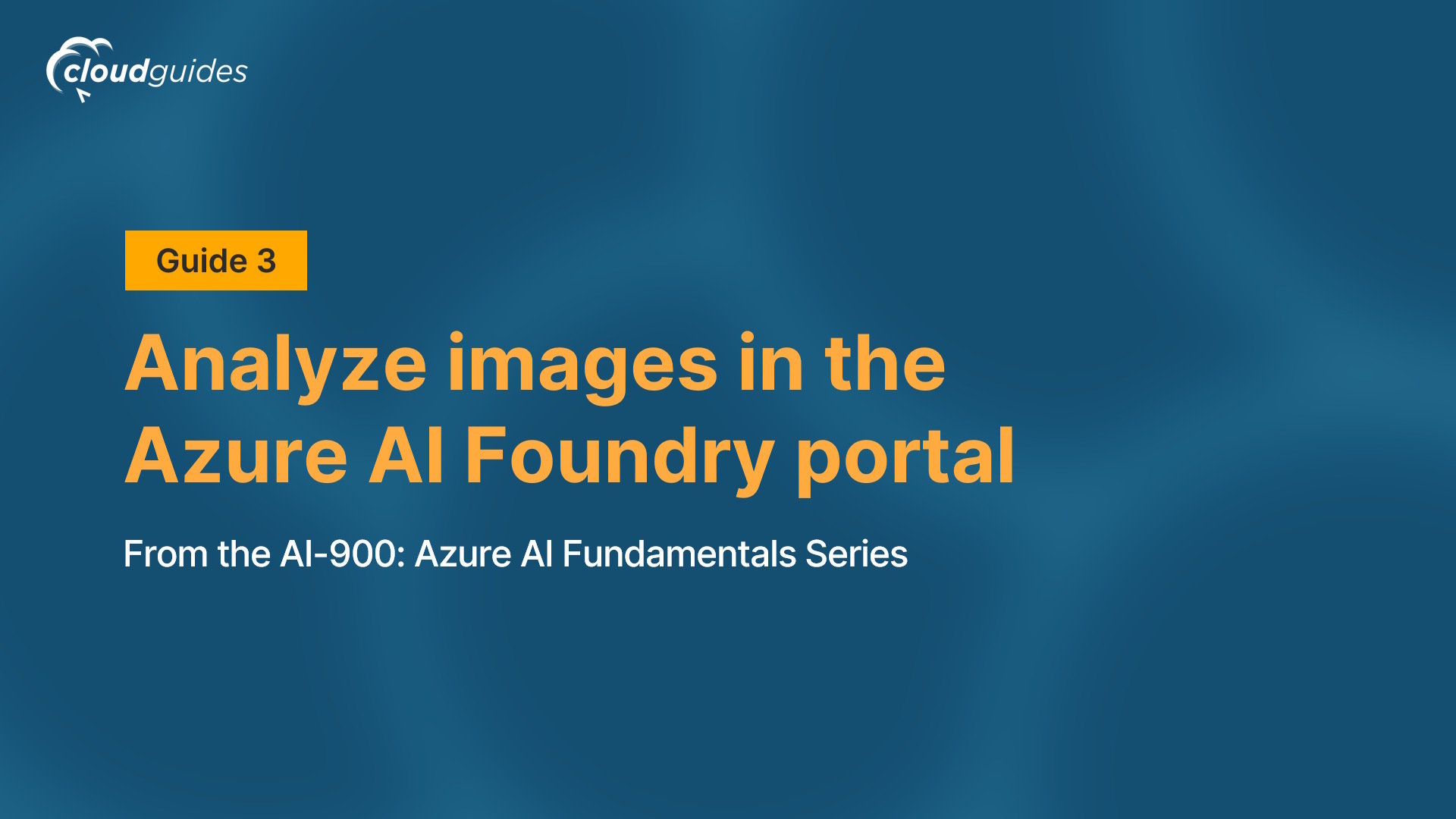
In this guide, you'll see how to use Azure AI Vision in the Azure AI Foundry portal to extract information from images using built-in try-it-out experiences. You’ll explore how a smart store could analyze camera images with Azure AI Vision to identify customers needing assistance from employees.
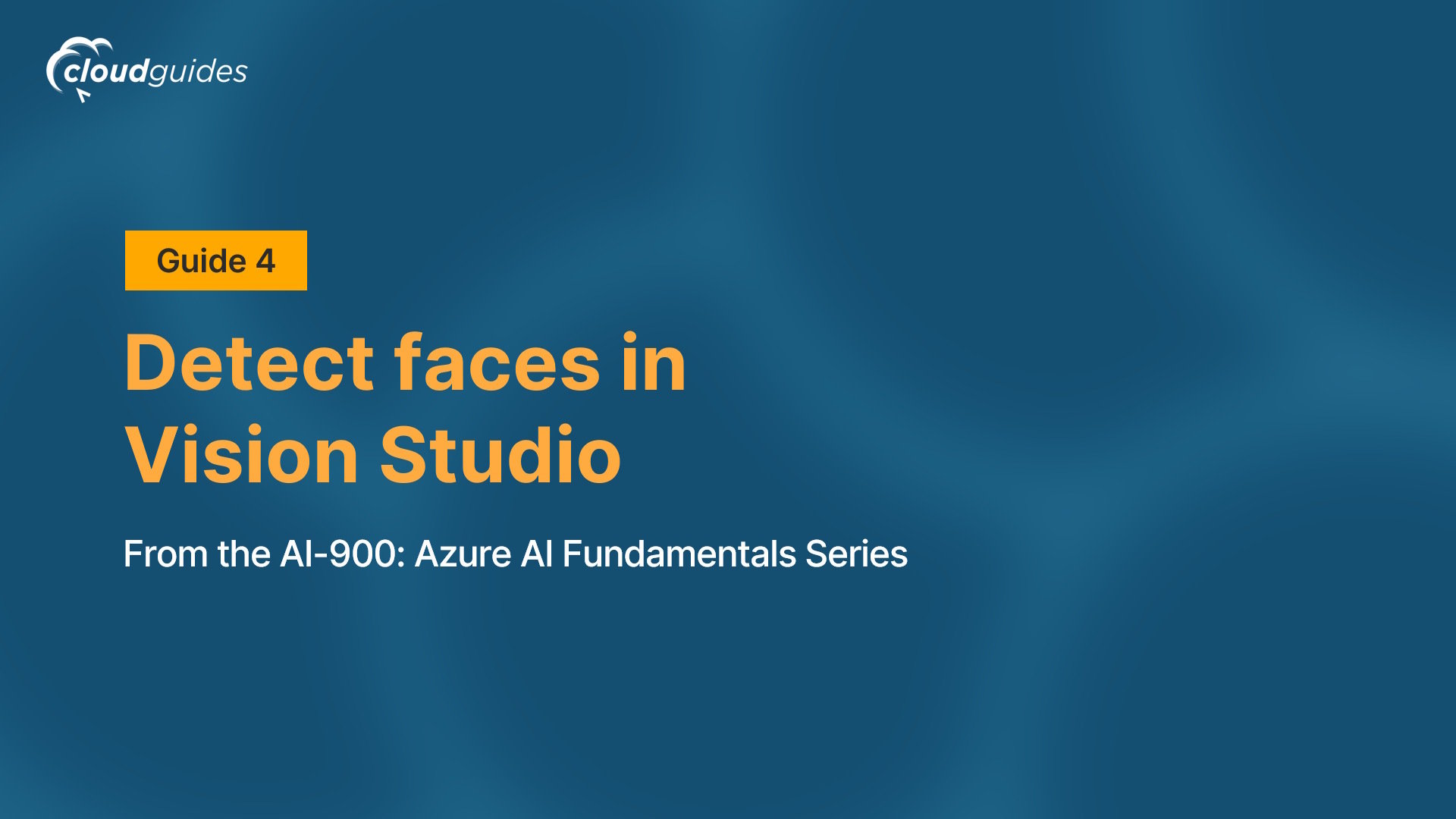
In this guide, you'll see how to use Azure AI Face service to detect human faces in images. Using Vision Studio, a no-code platform, you'll test face detection capabilities by identifying faces and their bounding box coordinates. In a retail scenario, this can help businesses locate customers in-store to enhance assistance and service.
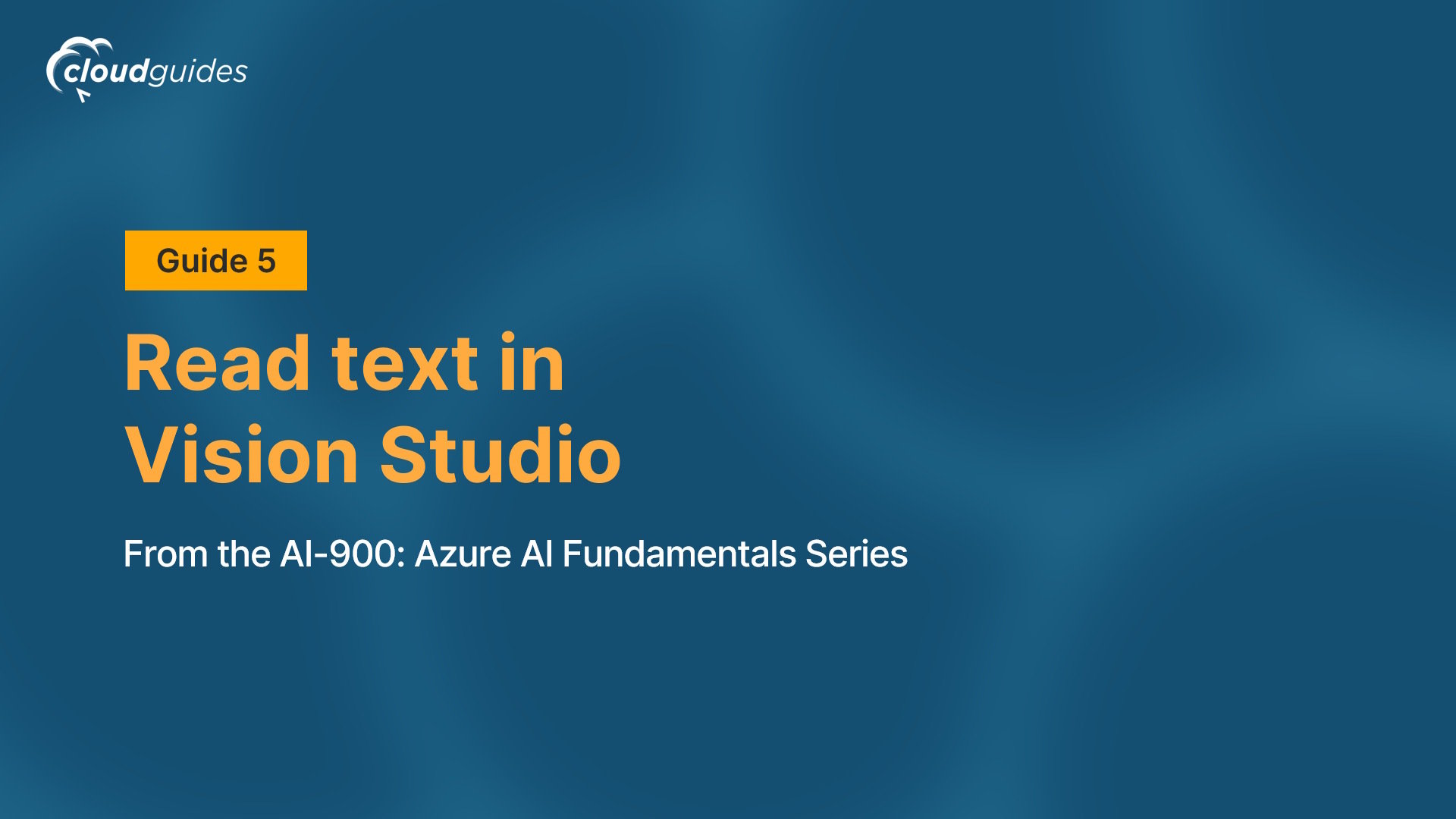
In this guide, you'll see how to use Azure AI Vision for optical character recognition (OCR). OCR helps detect and interpret embedded text in images, a common computer vision challenge. Using Vision Studio, you'll learn to extract text from images without writing code, and experiment with OCR on various image types to understand its capabilities.
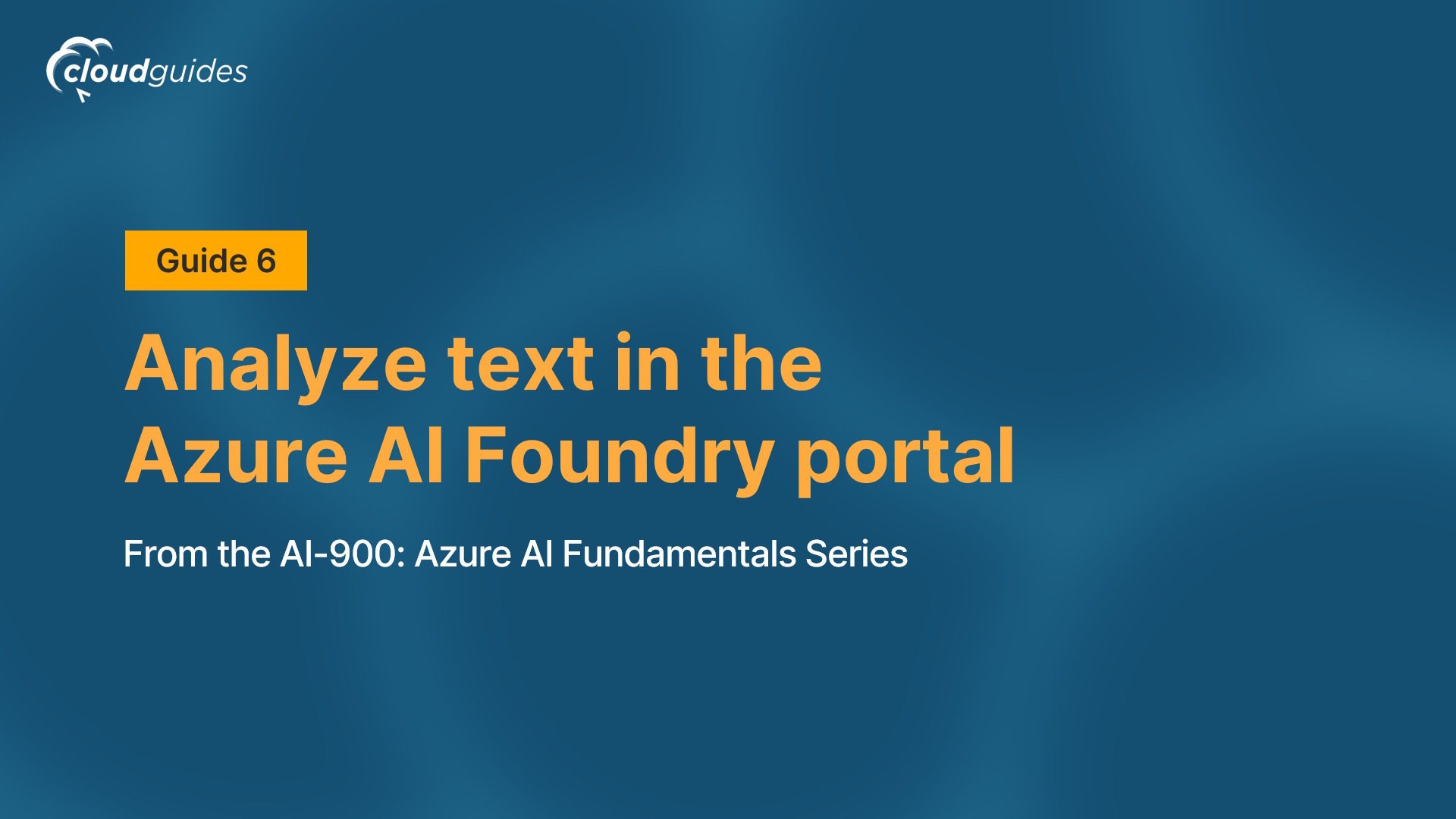
In this guide, you'll see how to use Azure AI Language in the Azure AI Foundry portal to extract key phrases from text input, identify sentiment, and recognize entities like locations or people. You’ll explore capabilities that can help businesses, like the fictitious Margie’s Travel, gain insights from customer feedback and improve services.
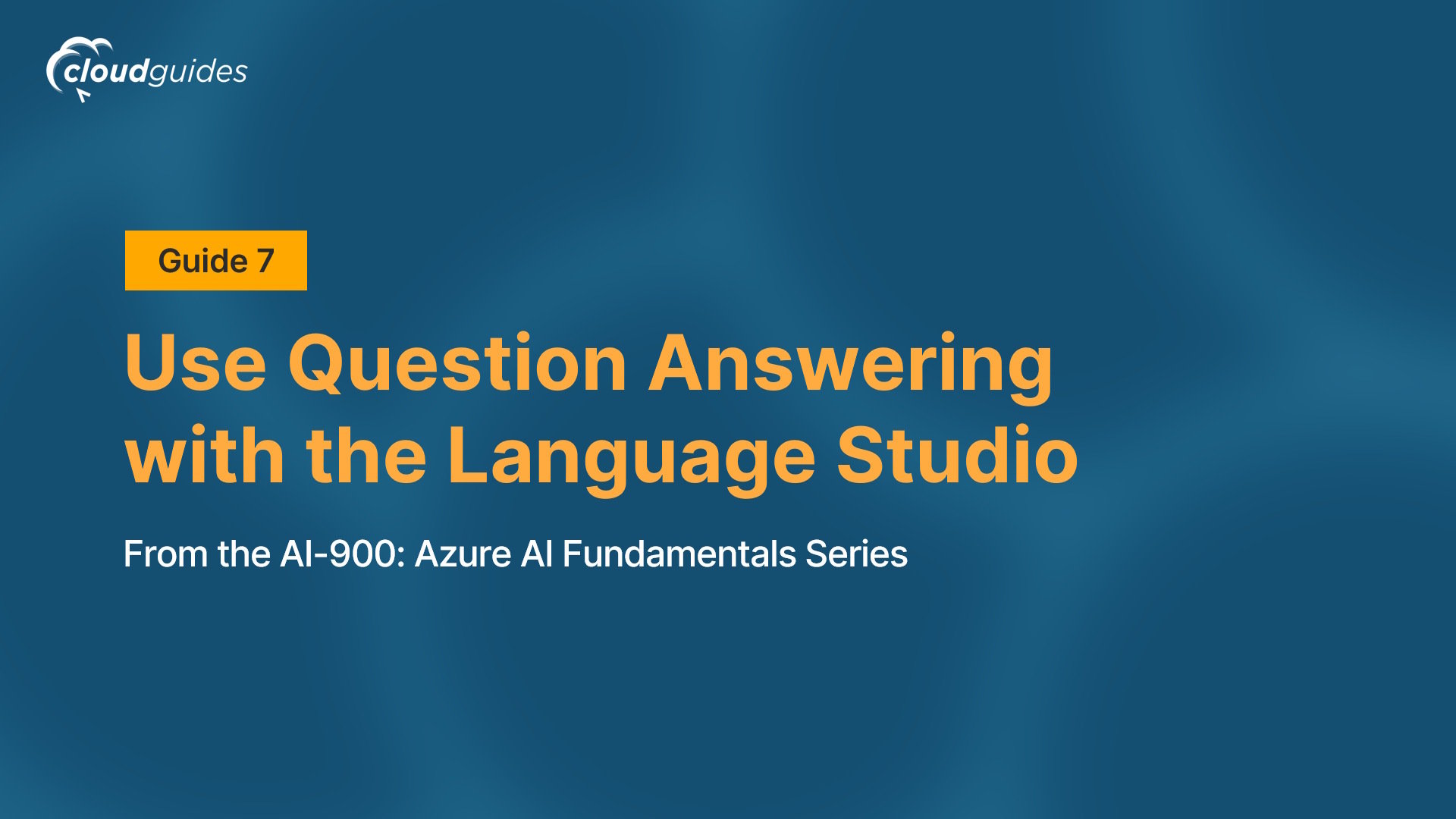
In this guide, you'll see how to use Language Studio to create and train a question-answering knowledge base from an existing FAQ page of the fictitious Margie’s Travel. You'll explore Azure AI Language’s question-answering capabilities, which use natural language processing to interpret questions and provide relevant answers. This capability helps businesses automate customer support efficiently using existing content.
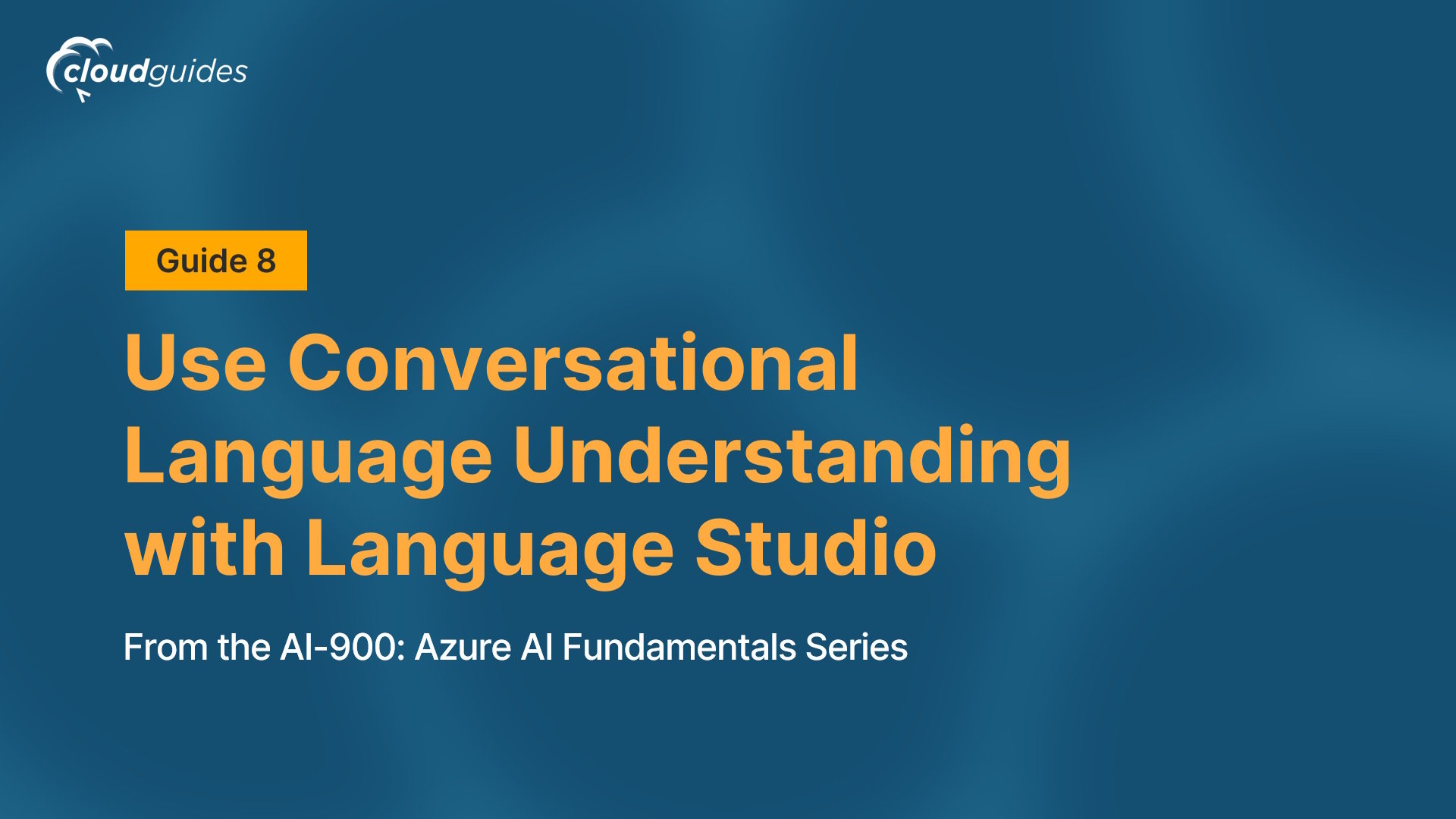
In this guide, you'll see how to use Language Studio to create and test a project that understands natural language commands for controlling devices like lights or fans. Using Azure’s Conversational Language Understanding service, you’ll learn to configure AI-powered interactions, enabling computers to interpret and respond to spoken or typed instructions for home automation or other command-driven applications.
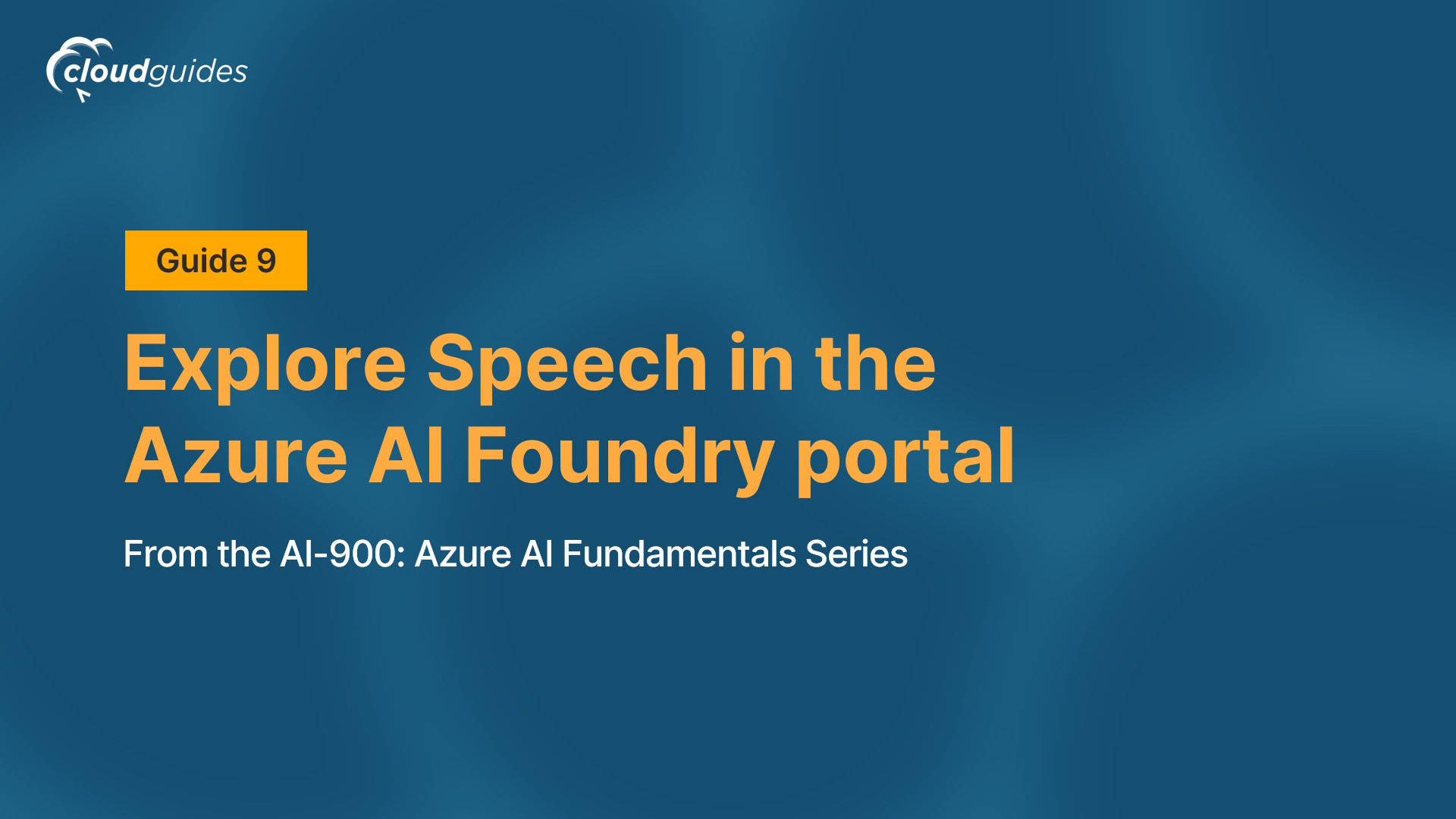
In this guide, you'll see how to use Azure AI Speech in the Azure AI Foundry portal to transcribe audio using built-in try-it-out experiences. This service can be used to transcribe meetings in real time or convert recordings into text.
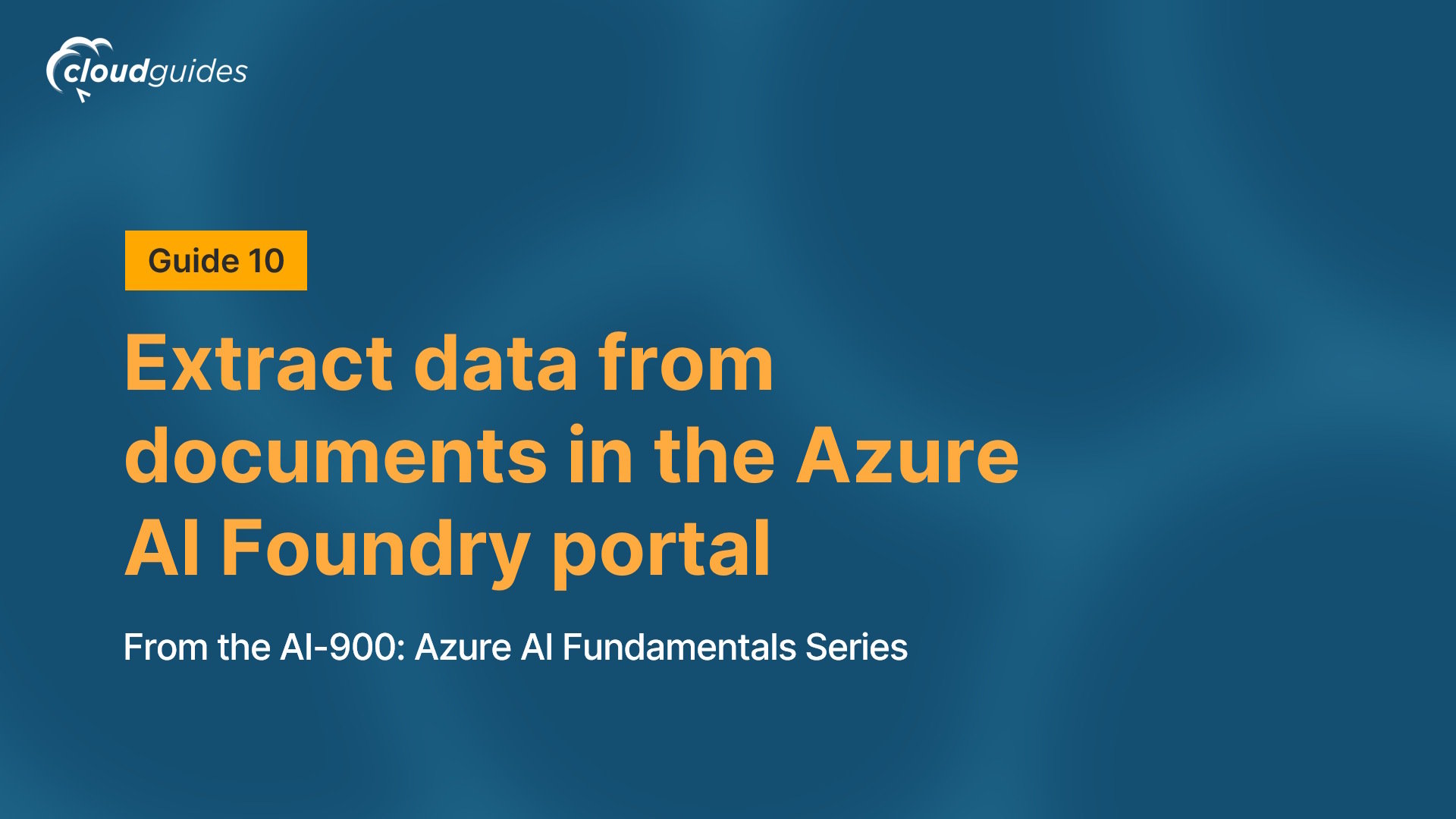
In this guide, you'll see how to use the Azure AI Document Intelligence service’s prebuilt models in Azure AI Foundry to extract data from a store receipt. While Optical Character Recognition (OCR) reads printed or handwritten text, it lacks structure. Document enhances OCR by capturing the structure of the text, such as data fields and information in tables.
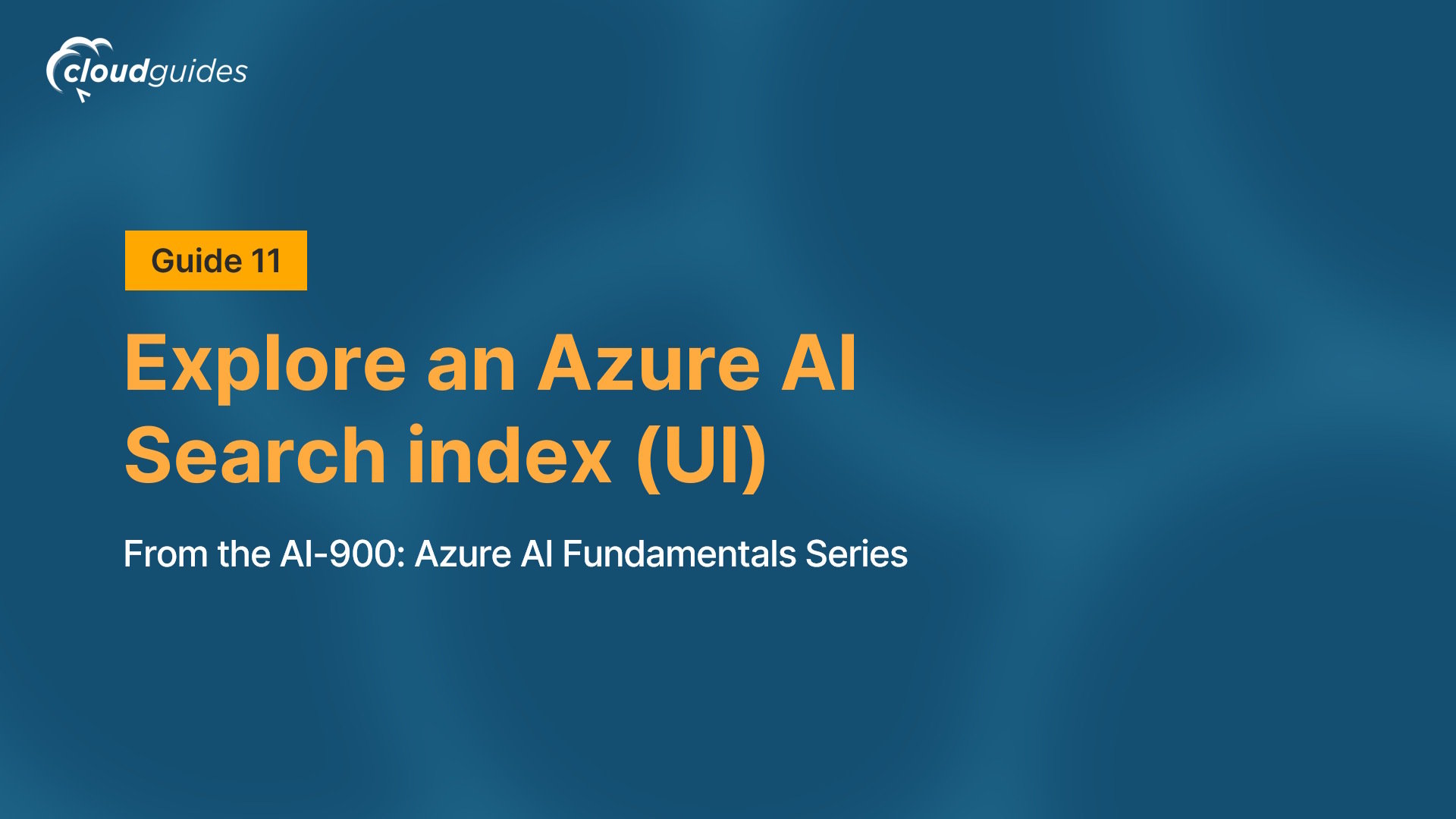
In this guide, you'll see how to build an Azure AI Search index to extract insights from customer reviews for the fictitious Fourth Coffee chain. You'll create Azure resources, extract and enrich data with AI skills, use Azure’s indexer, query your search index, and review results in a knowledge store, making it easier to analyze customer experiences.
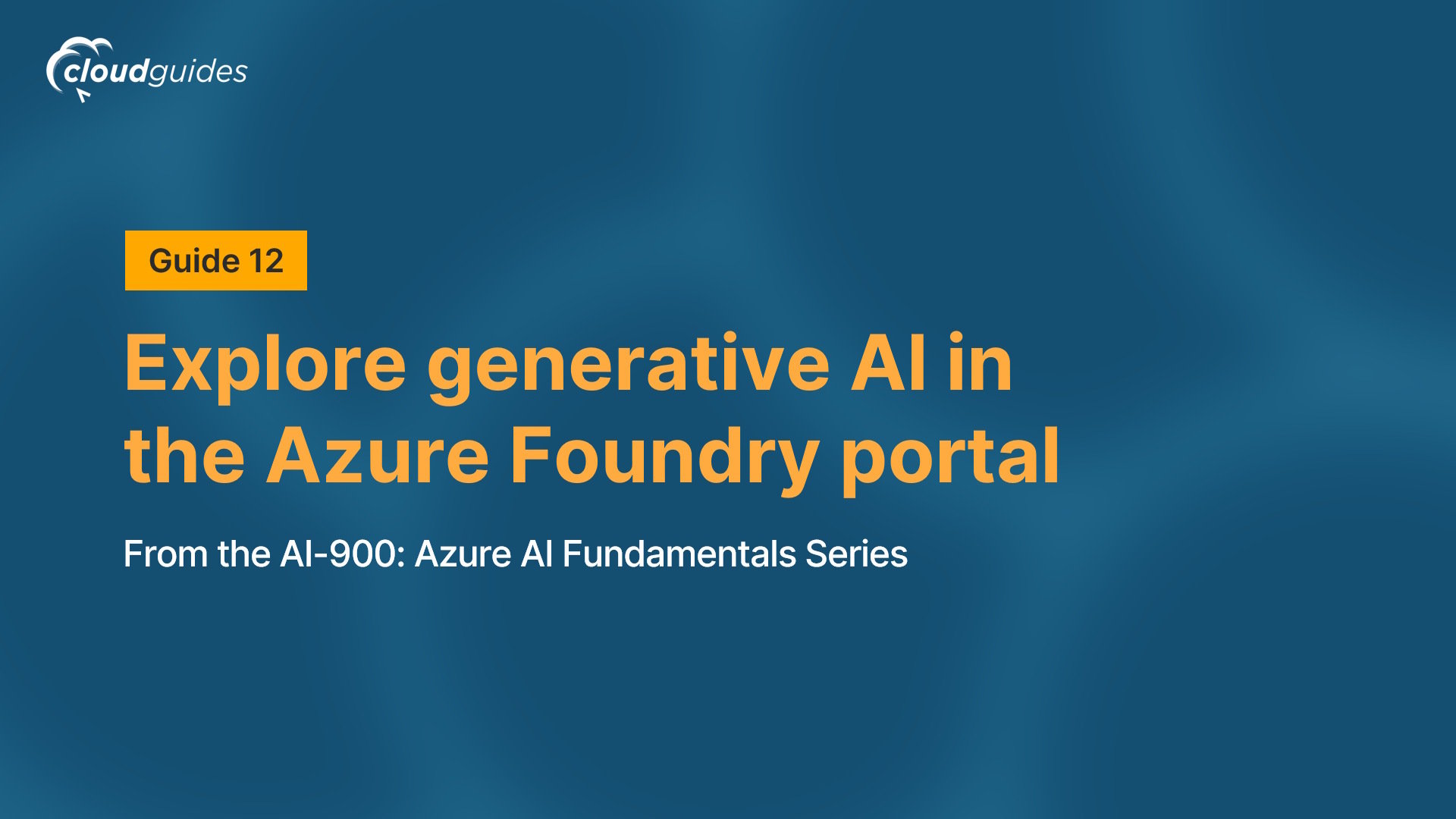
In this guide, you’ll see how to deploy a generative AI model to a project and use it in the AI Foundry Chat playground to experiment with a generative AI assistant. During your chat session, you’ll try different ways to formulate prompts to improve the responses.
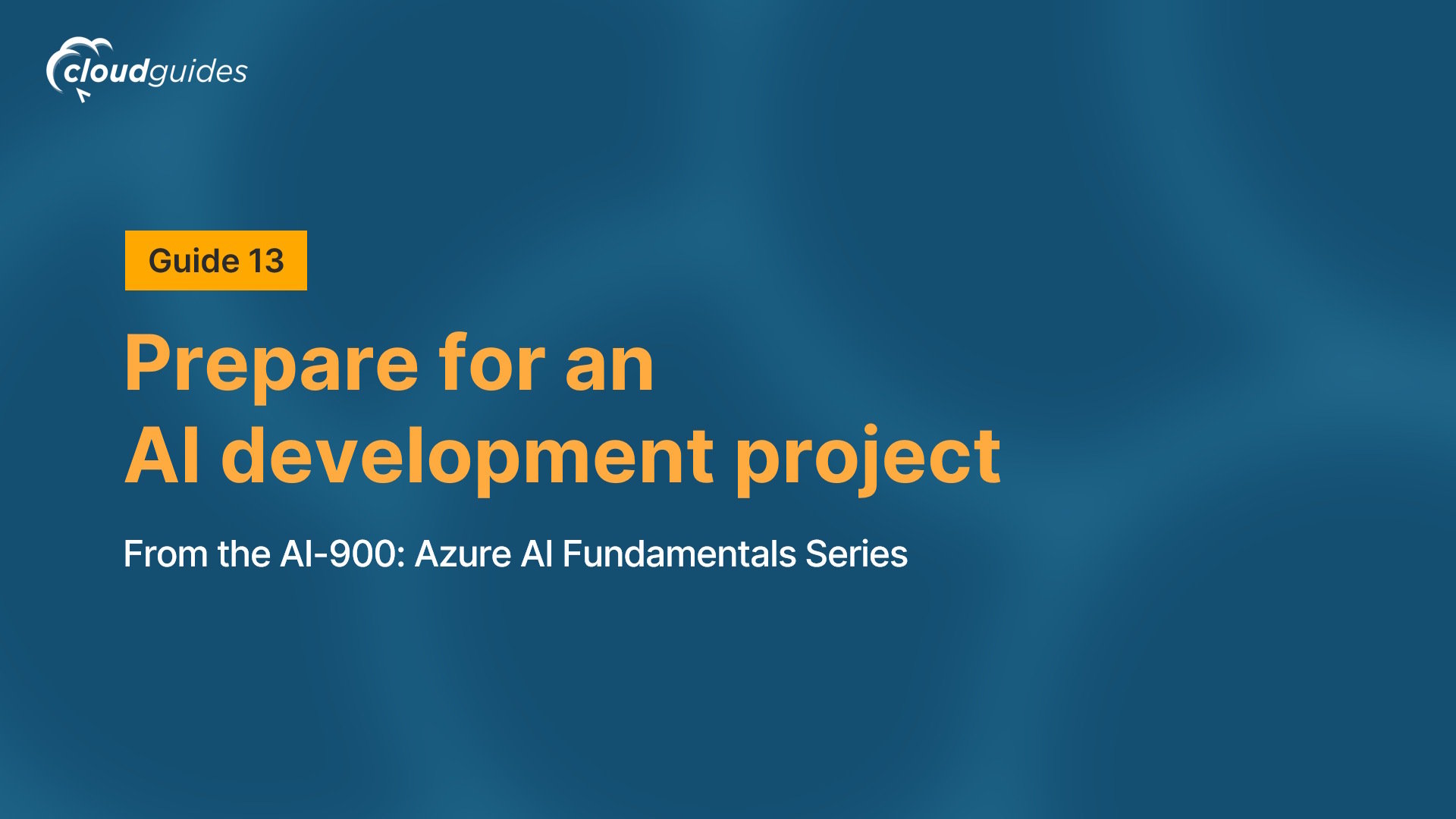
In this guide, you’ll see how to use the Azure AI Foundry portal to create a hub and project that’s ready for a team of developers to build an AI solution. You’ll also see how to add connected resources, and explore Azure AI Services and Azure OpenAI models.
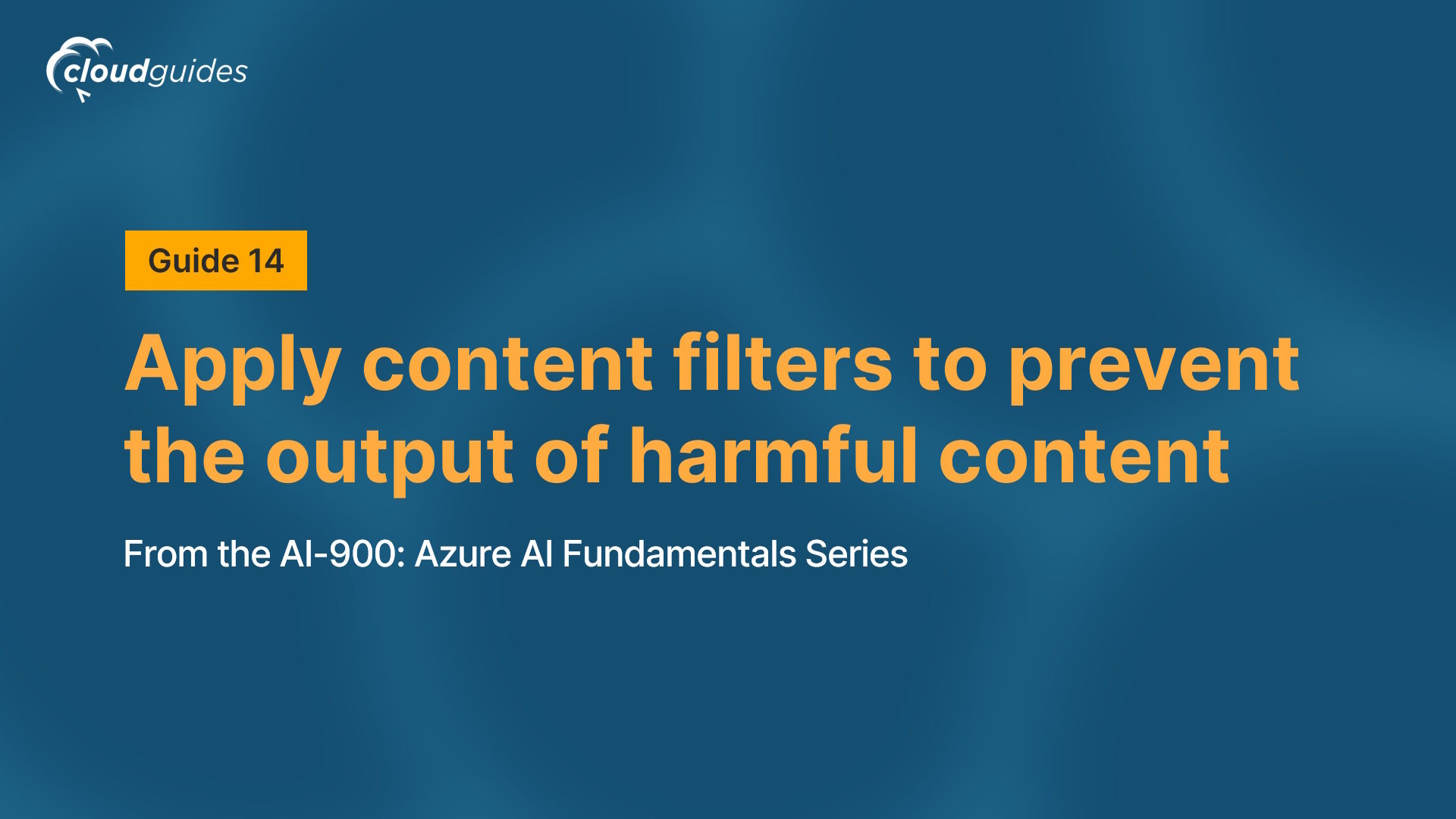
In this guide, explore the effect of the default content filters in Azure AI Foundry, which help ensure that potentially harmful prompts and completions are identified and removed from interactions with the service. Content filtering is one element of an effective approach to responsible AI when working with generative AI models.
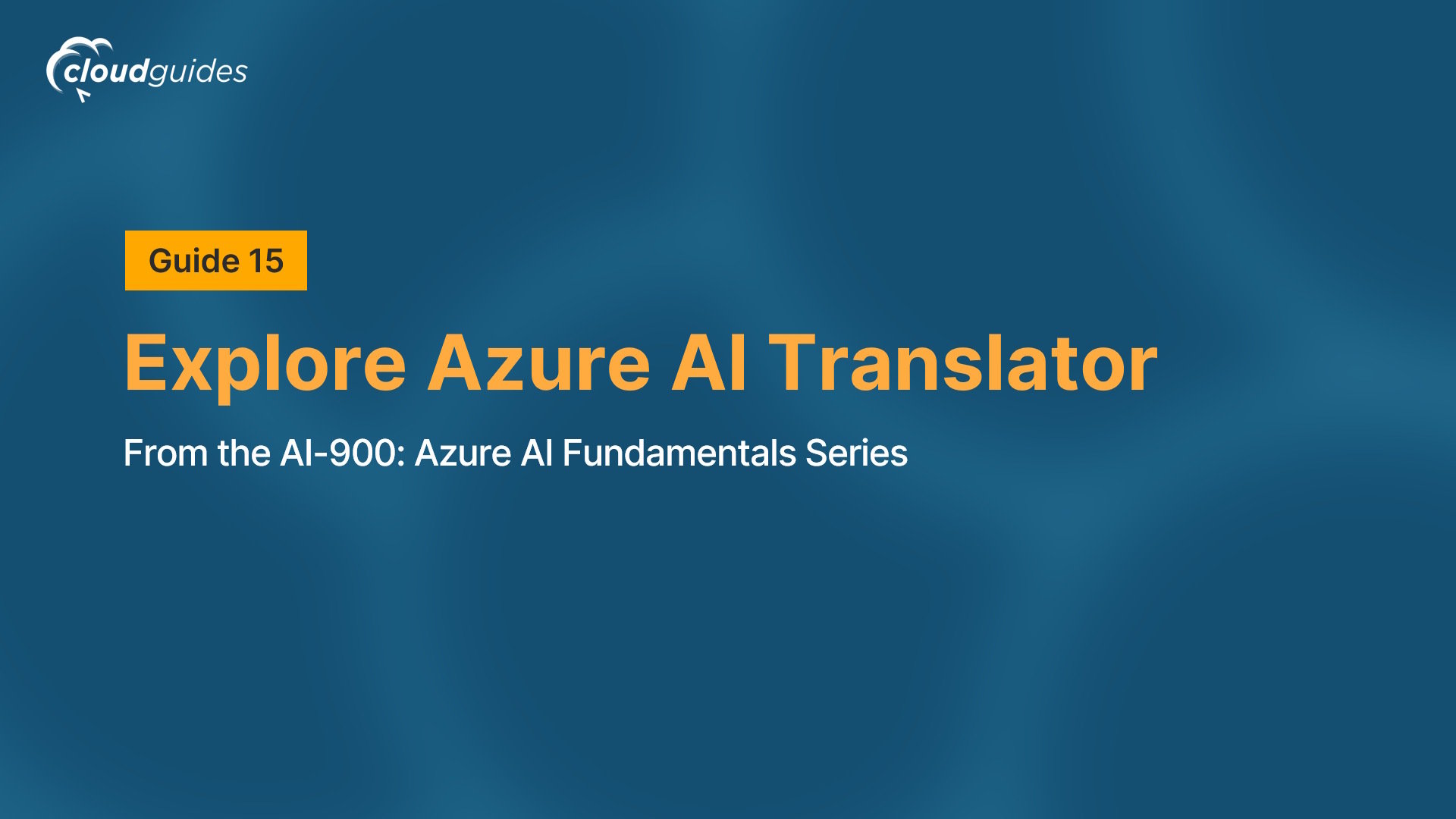
In this guide, you'll see how to use Azure AI Translator to simplify language translation and break communication barriers. You'll explore its capabilities in the Azure portal, demonstrating principles and functionality that also apply in real-world solutions like websites and mobile apps.